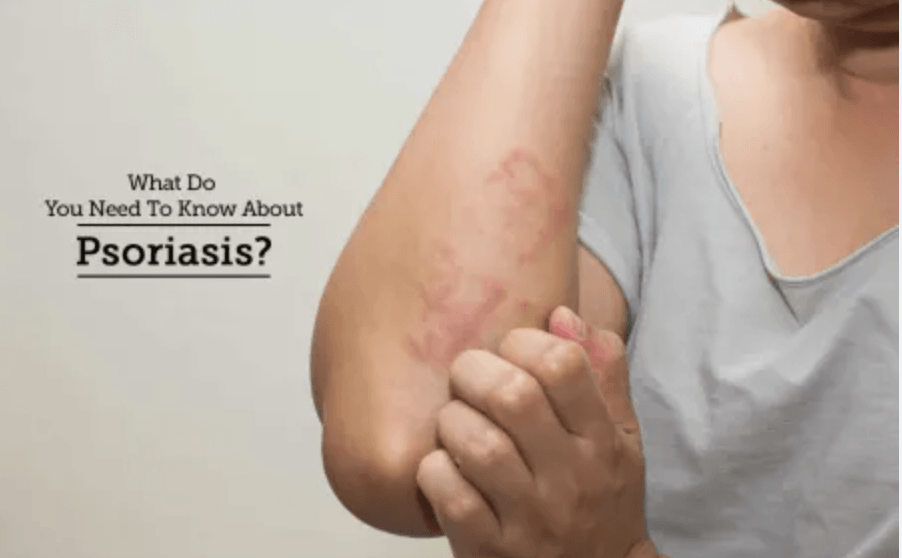
Myths and Facts About Psoriasis—What You Should Know
Of all the skin conditions our dermatologists in Jupiter encounter, psoriasis may be the most misunderstood, with numerous myths swirling around the condition.
What is Psoriasis?
According to the National Psoriasis Foundation (NPF), psoriasis is a disease with an unclear cause. Known as an “immune-mediated” disease, it is characterized by inflammation arising from dysfunction of the immune system, which causes inflammation in the body.
Psoriasis is the most common autoimmune disease in the U.S. (An autoimmune disease is one in which the immune system mistakenly attacks healthy body cells. Other examples include lupus, rheumatoid arthritis, and multiple sclerosis.)
Visible signs of psoriasis may include scales on the skin, and raised plaques that may appear different on different skin types. This occurs because the malfunctioning immune system speeds up skin cell growth. Instead of shedding as normal skin cells do, they pile up on the surface of the skin, often on the elbows, knees, and scalp, and may itch, burn, and sting.
The inflammation caused by psoriasis can affect other parts of the body. For example, one in three of those with psoriasis will also develop psoriatic arthritis (PsA). Signs include swelling, stiffness, and pain in the joints and nearby areas.
In its milder forms, PsA may go undiagnosed. It’s important to catch and treat PsA early, however, to avoid permanent joint damage.
Common Psoriasis Myths
While psoriasis may not be physically debilitating as with other autoimmune diseases, it can cause emotional issues, from embarrassment to reduced self-esteem.
Many myths surround psoriasis, stigmatizing the patient and adding to their feeling of shame over what is in fact a medical condition.
- For example, psoriasis is not caused by “dirty skin,” or a lack of good hygiene. It occurs when something goes wrong with the immune system, and may be triggered by any number of factors, from stress to infection to skin injury, or even changes in the weather. And it is largely genetic, although it is possible to develop psoriasis even if you have no family history of it.
- Psoriasis is not contagious. It may be unsightly, but you can no more “catch” psoriasis from someone than you can “catch” arthritis or freckles.
- Psoriasis is not the same as dry skin or eczema. Eczema is usually environmentally induced, often by exposure to such irritants as harsh chemicals, bacteria, or food allergies.
- Psoriasis does not affect fertility. Women with the condition can have normal, healthy babies.
- You cannot “outgrow” psoriasis. So-called “flares,” where the condition worsens then remits for a time, have led to this myth. Moderate to severe psoriasis must be treated by a board-certified dermatologist.
What You Can Do
One of the many triggers for a psoriasis flare is stress. That’s because stress causes inflammation in the body, which as we’ve seen is the culprit behind psoriasis.
So if you have psoriasis, one of the best things you can do to help keep the condition under control is to manage your stress. Ironically, psoriasis itself can increase stress, so relaxation is paramount.
Meditation, deep breathing, exercise, and cognitive behavioral therapy (CBT) can help.
Also, try to avoid such skin injuries as bug bites, nicks, and cuts. If you’re using gardening to help reduce stress, for example, be sure to wear gloves while you work.
Because each person is different, their psoriasis triggers will be different. So try to notice and avoid your own particular flare triggers.
In addition, the American Academy of Dermatology (AAD) and other experts recommend the following:
- Limit shower time to five minutes or less, and baths to 15 minutes or less.
- Use warm, not hot, water.
- Use moisturizer after every encounter with water.
- Try an over-the-counter (OTC) itch-relieving product.
- Limit refined sugars, fatty red meats, and processed foods, all of which can increase inflammation.
What Can We Do
It’s important to have a dermatologist treat your moderate or severe psoriasis, not only because of the discomfort factor but because psoriasis can increase the risk of other health issues, such as PsA and heart disease.
The AAD reports that studies suggest the “long-lasting inflammation inside your body may affect your heart and blood vessels, putting you at greater risk of developing heart disease or having a stroke.” Mild psoriasis, however, doesn’t seem to increase this risk.
Older treatments for psoriasis were often largely ineffective or highly toxic to the bone marrow, kidneys, or liver.
These days, new classes of drugs allow for more effective treatment of both conditions with fewer side effects. This includes the so-called “biologics” for psoriasis that can target and suppress the specific part of the immune system responsible for psoriasis.
Finally, dry, itchy, painful skin conditions could be any of a number of other diseases, infections, or irritations. That’s why it’s important to see us have your complaint professionally diagnosed and treated.

